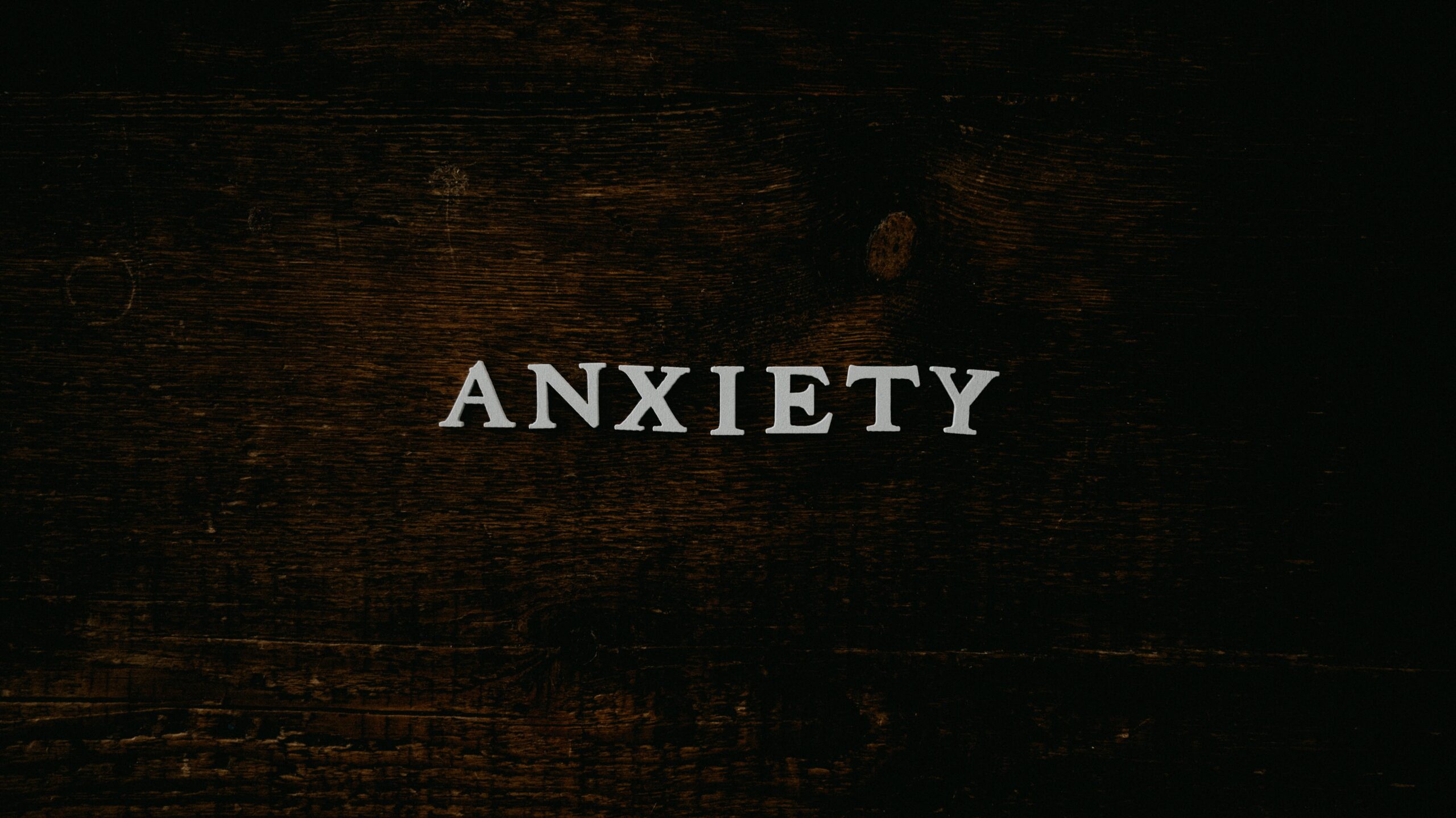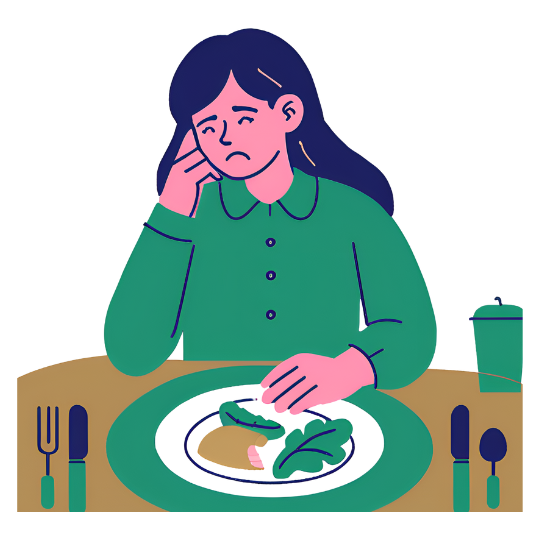
In the United States, the most common type of mental disorder is an anxiety disorder. In fact, more than 18% of Americans experience anxiety in any given year. This includes panic disorder, generalized anxiety disorder, specific phobias, and obsessive compulsive disorder. Anxiety can keep you up at night and feel overwhelming at times. However, mental health professionals can help. Anxiety disorders typically respond well to treatment which can include medication or therapy. However, less than 37% of people with anxiety disorders seek treatment with a myriad of negative consequences outlined below.
Anxiety on the Body:
Even though anxiety is a mental health issue, it can have devastating effects on the body. Individuals with certain forms of mental health disorders deal with chronic stress that may cause them to be less attentive to their physical problems. Those dealing with chronic stress and anxiety have an increased risk in developing medical conditions such as obesity, cardiovascular issues, gastrointestinal issues, and increased risk for diseases like cancer and premature death.
Cardiovascular issues:
Panic attacks and chronic anxiety put a lot of stress on your heart by increasing blood pressure and pulse. As such, people with unmanaged anxiety are more likely to have heart attacks than their peers. Of these heart attacks suffered by those with anxiety disorder are also more likely to be fatal.
Many studies have shown that women with anxiety disorders are 59% more likely to have heart attacks than their peers. Those heart attacks 31% are more likely to result in death. Furthermore, men and women with heart disease are twice as likely to suffer from heart attacks when they suffer from anxiety disorder.
Another consequence of untreated anxiety disorder involves an increased release of stress hormones. For example, when a person has a panic disorder or prolonged anxiety, the body releases a flood of stress hormones including adrenaline and cortisol. Too much adrenaline or cortisol over long periods of time can cause unwanted weight gain, cognitive decline, immune system deficiencies, higher cholesterol, high blood pressure, and heart diseases.
Anxiety and substance abuse:
Furthermore, there is a very high overlap with anxiety disorder and with substance use disorder. Individuals who are suffering from anxiety will often turn to drugs or alcohol to numb themselves, help them sleep, and calm themselves down. Unfortunately this is only a temporary solution as the anxiety returns when the effects of the substance wear off which causes individuals to continue self- medicating. This turns into a vicious cycle as the person’s tolerance for the substance increases, and the person needs to increase the quantity and frequency of taking drugs or alcohol.
There is a huge connection between anxiety disorders and addiction: 20% of people with social anxiety disorder, 25% of people with OCD, and more than 50% of people with PTSD develop substance abuse issues.
Your brain and anxiety:
When you have anxiety disorder, your sympathetic nervous system is working overtime. Your sympathetic nervous system is known as “fight or flight” which is activated by perceived threats. It is activated temporarily to get you out of danger and trouble. However, when it is working all the time, it can cause health problems.
Certain biological functions are the responsibility of the sympathetic nervous system, and others are the responsibility of the counteracting system called the parasympathetic nervous system.
When the parasympathetic nervous system is underutilized (in opposition to the overactive sympathetic nervous system), you experience difficulty in sleeping and healing from injuries and other illnesses. An underactive parasympathetic nervous system also leads to more muscle tension leading to increased frequency of headaches and joint pain. There is a large body of research that indicates that people who suffer through chronic distress associated with mental health disorders can experience chemical changes in their organs – particularly their brain.
Some possible long-term effects include memory problems and frequent migraines.
Untreated anxiety and quality of life:
The quality of life also suffers for those who suffer from untreated anxiety. In fact this is probably the biggest way that untreated anxiety can impact you. To live with an anxiety disorder means to live with stress and fear, sometimes without being able to pinpoint what is causing it. Some patients suffering from anxiety disorder may have trouble paying bills on time, trouble attending or face normal tasks at work, maintaining their own home, or even being able to participate in enjoyable activities such as passing time with friends.
Anxiety can be a cage for people, a cage of generalized fear and anxiety that can manifest in a variety of ways: from avoiding social events and finding excuses to stay at home, turning to substances and alcohol to ‘self-medicate’, or simply feeling tense all the time and becoming unreasonably angry with those they love. Anxiety disorders thus make it difficult for patients to maintain the friendships and romantic relationships they care about.
However, studies show that those who seek cognitive behavioral therapy for their anxiety can definitely improve their quality of life and relationships with others – anxiety is treatable!
Untreated anxiety and severe, life-threatening conditions:
Anxiety disorder can often occur with other mental illnesses. Individuals with untreated mental health disorders are at an increased risk for self-harm and attempted suicide. The vast majority of suicide attempts are associated with untreated mental health disorders. According to the National Alliance of Mental Illness, more than 90% of people who died by suicide have been diagnosed with a mental illness, including anxiety disorders such as social anxiety or obsessive compulsive disorder.
If you have one of these anxiety disorders along with depression or another mental illness, your risk for suicide is even greater. Therefore, it is important to seek help from a professional as early as possible.
Treatments for Anxiety:
The longer a person neglects treatment for their mental health disorder, the more complications can develop. Therefore, it is very important to find treatment for anxiety. Treatment for anxiety disorders can include cognitive behavior therapy or some form of psychotherapy, support groups, relaxation techniques, and sometimes medication management. With the right help, those suffering from anxiety disorders are able to get their anxiety under control.
Gospel message for those suffering from anxiety:
Untreated anxiety and unresolved symptoms of severe anxiousness can lead to persistent pain, hopelessness, and even diminished reasons for living. There are many trusted ways to mitigate these symptoms such as psychotherapy, relaxation techniques, medication management, exercise, good nutrition – but also the Gospel can empower us get through these difficult moments and conquer anxiety as well.
Ever since original sin was introduced in the lives of Christians, Satan has been trying to keep us separate from God through a myriad of ways to make us miserable and doubtful. One of these ways is through ‘cognitive distortions’ which means incorrect thoughts. When cognitive distortions that lead to anxiety remain unchecked, the enemy will continue poking at them and fueling these thoughts to keep tormenting us. We have two ways to respond to this:
1. Continue to passively suffer from these cognitive distortions
2. Nurture the ability to fight and conquer these cognitive distortions
We hope to encourage those suffering from anxiety to not only fight mentally but also spiritually. Especially during the times when we suffer the most, there are common misconceptions that can happen. For example, when something terrible happens in our lives, we may start thinking some destructive thoughts like these:
– “This is happening to me because I am not a strong Christian.”
– “God must not love me.”
– “I must have done something wrong or made a grave mistake.”
– “My prayers are useless.”
– “This must be my fate. I should just accept it.”
Cognitive distortions such as these MUST be replaced with truth. Otherwise, if these thoughts are left unchecked, can lead to even further distortions to the point of eventual, complete disbelief.
Let’s tackle some of these cognitive distortions one by one with the Gospel:
“This is happening to me because I am not a strong Christian.”
This is a common cognitive distortion amongst Christians suffering from anxiety and mental health disorders. However, the Bible tells us (and also experience) tells us this statement is not true – problems can occur and will occur even to those who feel very strong in their faith. At the end of the day, it is not about being a “bad vs. strong Christian” but is about being a TRUE Christian.
1 John 5: 11- 12 “And this is the testimony: God has given us eternal life, and this life is in his Son. 12 Whoever has the Son has life; whoever does not have the Son of God does not have life.”
So the truth is that if Jesus is in you, you are a beloved Child of God, even if you feel like you’re a ‘weak Christian.’ As a beloved Child of God, you have the blessing of the assurance of salvation and forgiveness of sins.
“God must not love me or maybe he’s angry with me.”
Christians suffering from anxiety and mental health disorders may mistakenly draw this conclusion, especially when it seems like their illness is not getting any better. However, this statement is furthest from the truth and what the Gospelnsays: when Jesus died for our sins, all our sins were forgiven once and for all:
John 19:30: When Jesus had taken the wine, he said, “It is finished.”
God is not a feeble or an indecisive God. His love for us is unwavering and constant – even when we are down, even when we are weak, even when we are ashamed. Ever since the moment Jesus died for our sins, he took the punishment for our sins once and for all. This gift of sacrifice that we have been given shows us the depths of God’s love for us and can never be reversed. This means this gift that God gave us means it will never lose its power and His love is unconditional.
“I must have done something wrong or made a grave mistake.”
This is another common cognitive distortion who find themselves in a difficult situation. However, the Bible says the contrary:
Isaiah 58: 11 And the LORD will guide you continually and satisfy your desire in scorched places and make your bones strong; and you shall be like a watered garden, like a spring of water, whose waters do not fail.
Of course, we will make mistakes and may stray from the path, but God promises us guidance in our lives. God designed you with a purpose and guides us on our unique path even when we find ourselves in difficult situations that go beyond our understanding. Even when we make mistakes, we should not turn away from God because we feel ashamed. In fact it is precisely during these times that we should turn to Him and find refuge in Him.
“My prayers are useless.”
Many Christians will come to a point in their lives where they struggle with prayer – they may feel that their prayers are being left unanswered and this can lead to feelings of anger towards God, feelings of shame that you feel disconnected from God, or feelings of apathy (i.e: “why should I pray when they’re left unanswered?).
However, it is during these times that it may help us the most to set aside time and continue to pray to God and wait patiently for him to answer. Jesus himself taught the importance of persistent prayer to his disciples, knowing that they would all experience doubt when it came to prayer.
When dealing with anxiety or mental health disorders that seem to be all- consuming and never-ending, it is important to not only speak to a therapist and/or take medication, but also to pray to God to nurture you spiritually and take refuge in him. He is a source of comfort and strength when all else fails.
Luke 11:9-13: “I tell you: ask, and you shall receive; seek, and you shall find; knock, and the door shall be opened to you. For everyone who asks, receives; and everyone who seeks, finds; and to everyone who knocks the door will be opened.”
“This is my fate or destiny. I should just accept it.”
This thought may come up in those suffering from anxiety and mental health disorders who want to get better but think it is hopeless for them. Perhaps they think their problem is too great and that they are too weak to overcome it. However, this is something one should fight against.
Untreated mental health disorders such as anxiety can lead to bigger, more severe problems. Untreated anxiety as we saw can lead to increased risk for heart attacks and other problems in the body. This is Satan’s way of making sure we continue to suffer and not enjoy the warmth and the light from God. He wants us to continue thinking that there is no hope, that our situation is one of hopelessness. This will make it easier for him to keep us from going to God and continuing our relationship with Him.
You do NOT have to accept current circumstances as fate or destiny. We encourage you to seek the help you need from a licensed practitioner, while also going to God and praying to Him. Remember, He loves you and has a plan for you. Diseases and terrible times are not permanent, but God’s love is.
Enjoyed our blogpost? Subscribe to our newsletter for more resources on mental health and integrating the Gospel message in your healing journey.
If you found our resources useful, please consider donating to Oak Health Foundation, which is a 501(3)c nonprofit dedicated to providing resources regarding holistic mental healthcare and subsidized treatment for those in need.




